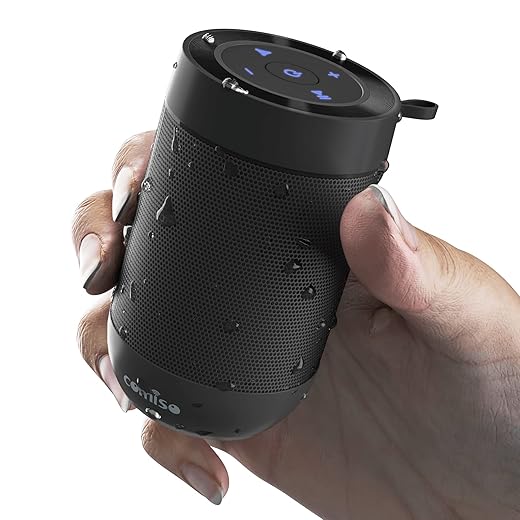









Understanding Bluetooth Speaker Codecs: A Comprehensive Compatibility List
Bluetooth speakers have revolutionized the way we experience sound, transforming the mundane act of listening into a dynamic auditory adventure. But have you ever wondered what lies beneath the surface of that seemingly simple connection? The answer lies in Bluetooth codecs. Understanding these codecs can be the key to unlocking the full potential of your audio experience. In this article, we’ll dive into the world of Bluetooth speaker codecs, breaking down what they are, why they matter, and which ones to look for when choosing your next speaker.
What Are Bluetooth Codecs?
Bluetooth codecs are like the translators of the audio world. Think of them as the essential bridge between the audio source (your phone or computer) and the speaker. They compress and decompress audio data to maintain sound quality while ensuring smooth transmission over Bluetooth. Without these codecs, you might find yourself grappling with poor audio quality or frustrating latency issues.
Imagine trying to understand a foreign language without a translator—your experience would be muddled and confusing. Similarly, the choice of codec can dramatically affect the clarity and richness of your sound.
Why Do Codecs Matter?
You might be asking yourself, “Do I really need to concern myself with codecs?” The answer is a resounding yes! The codec you choose can significantly impact your listening experience. It determines how well your audio quality is maintained during transmission, affecting everything from clarity to connection stability.
For instance, if you’re an audiophile who craves high fidelity, a codec like aptX HD might be essential for you. On the other hand, if you’re simply enjoying music while working out, the standard SBC codec might suffice. Each codec has its strengths and weaknesses, so understanding them can help you make an informed decision.
Common Bluetooth Codecs Explained
Let’s break down some of the most common Bluetooth codecs you’ll encounter:
SBC (Subband Codec)
SBC is the default codec for Bluetooth audio and is supported by virtually all Bluetooth devices. While it’s widely compatible, it doesn’t deliver the best audio quality. Think of it as the basic model of a car—functional but lacking in the luxury features that enhance your ride.
AAC (Advanced Audio Codec)
AAC is commonly used by Apple devices and offers better sound quality than SBC at similar bit rates. If you’re an iPhone user, you’ll appreciate the improved performance AAC provides, especially when streaming music from services like Apple Music. It’s akin to upgrading to a sportier car that gives you a smoother drive.
aptX and aptX HD
aptX is a favorite among audiophiles. It reduces latency and maintains higher quality audio than SBC. aptX HD takes it a step further by supporting higher resolution audio. If you’re serious about sound, look for speakers that support aptX HD. Picture it as driving a luxury vehicle equipped with cutting-edge technology that enhances your journey.
LDAC (Low Latency Audio Codec)
Developed by Sony, LDAC is designed for high-resolution audio streaming. It offers three different bit rates, allowing you to choose your quality level based on your connection stability. If you’re a fan of high-res audio and want to experience it wirelessly, LDAC is your best bet. Think of it as the high-performance sports car of the audio world, delivering thrilling speed and precision.
LC3 (Low Complexity Communication Codec)
Introduced with Bluetooth 5.2, LC3 is set to become the new standard codec. It improves audio quality while using less power, making it ideal for battery-operated devices. As technology advances, LC3 is like the electric car of codecs—efficient and future-ready.
Choosing the Right Codec for Your Needs
When it comes to selecting the right Bluetooth speaker, consider your listening habits. Do you frequently stream music from your smartphone? Are you an audiophile who prioritizes sound quality? Take the time to research which codecs your devices support. Compatibility is crucial!
Imagine trying to connect a high-end stereo system to a basic speaker—it just won’t deliver the experience you’re looking for. Similarly, pairing a high-quality audio source with a speaker that doesn’t support advanced codecs can lead to disappointment.
Conclusion
Understanding Bluetooth speaker codecs is essential for anyone who wants to enhance their audio experience. Whether you’re a casual listener or a serious audiophile, knowing which codecs are compatible with your devices can help you make informed decisions. As technology evolves, staying updated on the latest codecs can ensure you’re always getting the best sound quality possible. So, the next time you’re in the market for a Bluetooth speaker, remember: the right codec can make all the difference.
FAQs
1. What is the best codec for audio quality?
The best codec for audio quality is typically aptX HD or LDAC, as they support high-resolution audio streaming and offer lower latency compared to standard codecs.
2. Does my Bluetooth speaker need to support the same codec as my device?
Yes, for optimal performance, both your Bluetooth speaker and the audio source (like your smartphone) should support the same codec. This ensures better sound quality and reduced latency.
3. Can I change the codec used by my Bluetooth speaker?
Generally, the codec used is automatically selected based on the compatibility of both devices during the pairing process. However, some advanced devices may allow you to manually choose the codec in their settings.
